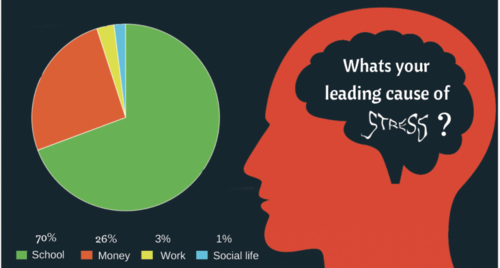

There are five major stressors for college students: academic, personal, family, financial, and future.
Academic Stress. Attending classes, completing the readings, writing papers, managing projects, and preparing for exams all put a heavy burden on students. ...
Personal Stress. ...
Family Stress. ...
Financial Stress. ...
Future Stress.
What are negative effects of stress?
Stress can play a part in problems such as headaches, high blood pressure, heart problems, diabetes, skin conditions, asthma, arthritis, depression, and anxiety. The Occupational Safety and Health Administration (OSHA) declared stress a hazard of the workplace.
The Effects of Stress on Your Body
Stress is any change in the environment that requires your body to react and adjust in response. The body reacts to these changes with physical, mental, and emotional responses.
Don’t let stress seep into your life. What are the risks of worrying on a regular basis?51National Institute of Mental Health:
"5 Things You Should Know About Stress."
American Psychological Association: "Stress Effects on the Body."
CDC: "Coping With Stress."; Tim Robberts; PatitucciPhoto; Igor Skrynnikov; RunPhoto; Steven Pomberg; Jupiterimages; Tom Schmucker; iStock;
AudioJungle Stress is a normal part of life. Many events that happen to you and around you -- and many things that you do yourself -- put stress on your body. You can experience good or bad forms of stress from your environment, your body, and your thoughts.
How Does Stress Affect Health?
The human body is designed to experience stress and react to it. Stress can be positive ("eustress") -- such as a getting a job promotion or being given greater responsibilities -- keeping us alert and ready to avoid danger. Stress becomes negative ("distress") when a person faces continuous challenges without relief or relaxation between challenges. As a result, the person becomes overworked and stress-related tension builds.
Distress can lead to physical symptoms including headaches, upset stomach, elevated blood pressure, chest pain, and problems sleeping. Research suggests that stress also can bring on or worsen certain symptoms or diseases.
Stress also becomes harmful when people use alcohol, tobacco, or drugs to try to relieve their stress. Unfortunately, instead of relieving the stress and returning the body to a relaxed state, these substances tend to keep the body in a stressed state and cause more problems. Consider the following:
Forty-three percent of all adults suffer adverse health effects from stress.
Seventy-five percent to 90% of all doctor's office visits are for stress-related ailments and complaints.
Stress can play a part in problems such as headaches, high blood pressure, heart problems, diabetes, skin conditions, asthma, arthritis, depression, and anxiety.
The Occupational Safety and Health Administration (OSHA) declared stress a hazard of the workplace. Stress costs
American industry more than $300 billion annually.
The lifetime prevalence of an emotional disorder is more than 50%, often due to chronic, untreated stress reactions.
Healthy Body and Mind
